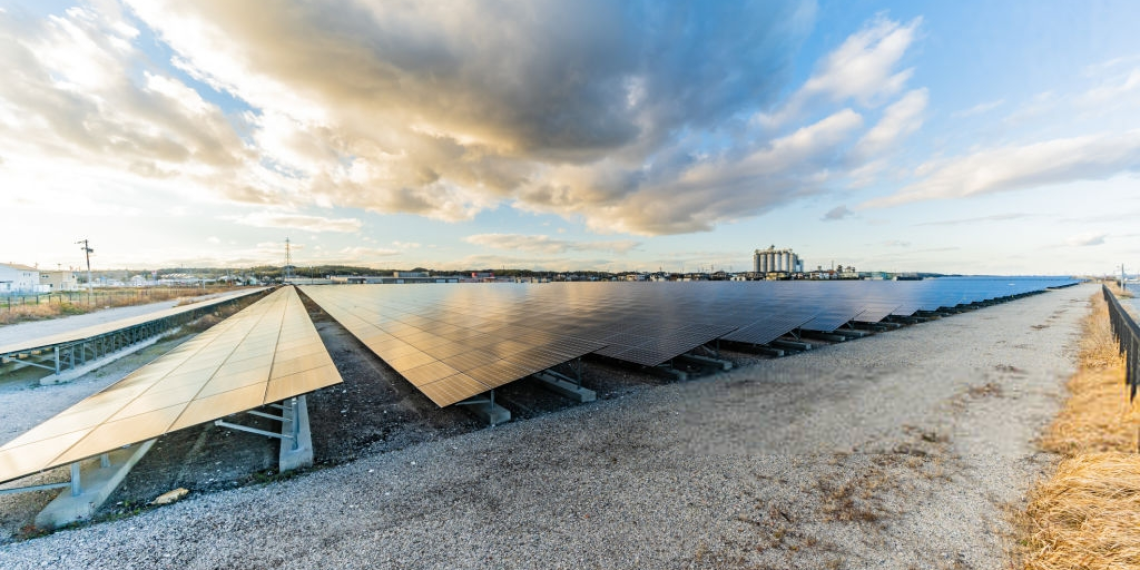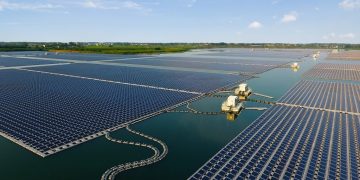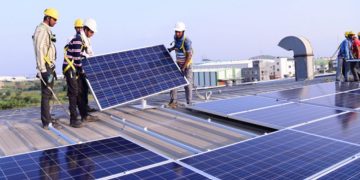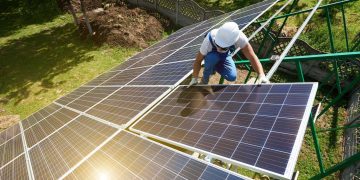Industrial facilities are going to be among the most difficult emitters to decarbonize.
The industrial industry — everything from factories to food producers to oil refiners — accounts for one third of U.S. main energy requirement, according to the Department of Energy. At many of these centers, fossil fuels, and particularly natural gas, would be the power feedstock used for process heating applications.
The system, deployed at Copses Farms, a state-of-the-art robotic dairy farm in Valley Falls, New York, utilizes solar thermal collectors to raise the amount of water used to sanitize the centre’s self-cleaning milking robots.
The IMA systems installed in Copses Farms will provide enough heat to make 50,000 gallons of warm water each year. The solar thermal collectors provide heat previously supplied by burning propane and wood, based on Skyven’s founder and CEO Arun Gupta.
Skyven Technologies was the $1 million grand-prize winner of the 2017 76West Clean Energy Competition. The yearly competition, managed by the New York State Energy Research and Development Authority, offers $20 million in prize money along with support solutions to boost the clean energy economy in New York’s Southern Tier area.
Collectively, these applications account for roughly 25 percent of U.S. industrial sector primary energy intake.
Solar thermal in a PV form Element
Skyven’s IMA is a horizontal panel box similar in size and weight into some 300-watt solar PV module. But instead than containing photovoltaic cells, the collector retains a range of mirrors, which track the sun during the day.
“We’ve taken concentrating solar technology and fit it into a PV form variable,” Arun Gupta informed Greentech Media. “The PV form variable has been proven time and time again to become economically attractive in behind-the-meter C&I applications. And so, we are piggybacking on PV form variable installation methods.”
Sunlight from the mirrors is concentrated on a black pipe in the receiver through which water or glycol flows in a loop to and from a heat exchanger located inside the industrial facility.
Heat from the IMA collector, which strikes temperatures as high as 400° Fahrenheit (204°C), may be utilized for an assortment of industrial process heating applications which range from feeding heat to present boilers to preheating drier intake air or preheating water for clean-in-place sanitation systems such as the one used at Copses Farms.
Concentrating solar technologies such as the IMA system could therefore provide heat for a lot of the use cases such as the creation of food, milk and beer.
America’s craft beer business, to mention 1 example, could be an perfect marketplace to turn to solar thermal technology in place of natural gas. As of 2018, almost 85 percent of those Btu consumed by the U.S. beverage sector for procedure and boiler heat generated from natural gas.
Temperatures of brewing processes such as mashing (70°C/158°F) and boiling (100°C/ / 212°F) are well within the range of heat given by Skyven’s IMA system.
Cheaper than gas
Skyven aims to fill a particular market need, Gupta said. Existing distributed solar technologies are known and have been around for a long time, but”they also don’t get hot enough for use in the industrial sector.”
“They’re good for swimming heating, to get a spa. But they are definitely not likely to do things such as pasteurize milk or cook bread.”
He noted, other solar thermal technologies — parabolic troughs, parabolic dishes, Fresnel reflectors — have been developed to be used at utility-scale electricity plants.
“They’re not ideal for behind-the-meter, onsite industrial applications,” Gupta explained. “We developed our solar energy concentrator so as to generate higher-temperature warmth that’s directly usable by these food manufacturing and industrial plants.”
The organization’s normal approach, said Gupta, is to”invoice for Btu which are quantified and actually delivered into the plant, and charge at a lower rate than the customer was paying for gas.”
He added,”the customer has no cost outflow other than for actual Btu that they would have been required to buy anyway, in a higher price. Each Btu our systems create is one Btu of fuel they don’t have to burn off .”
Gupta claims Skyven is able”to beat the delivered cost of natural gas by 10 to 50 percent, depending on the particulars of this undertaking.”
Customers sign a long term, multiyear heat source agreement with Skyven that includes maintenance of the equipment.
Skyven’s customers can opt for a no- or – partial-capital outlay installation. Gupta likened the no-money-down alternative to a C&I client signing a power-purchase agreement for a rooftop solar PV installation.
In this case, Skyven owns, operates and maintains the machine and keeps any available state and federal incentives. For example, Gupta said Skyven’s technology is eligible for both the federal Investment Tax Credit and rebates under California’s CSI-Thermal Program.
Customers can also opt to purchase Skyven’s equipment outright.
Up for Skyven Technologies is that the installation of IMA collectors at three food processing centers in California’s Central Valley.
With support from the California Energy Commission’s Food Production Investment Program, at 2021 Skyven will set up the Exact Same IMA technology located at New York’s Copses Farms at dairies operated by California Dairies, Inc., in Visalia, and Land O’Lakes, Inc., in Tulare, plus a tomato processing facility operated by Olam West Coast, Inc. at Lemoore.
In a research note, CEC personnel provided justification for the commission’s investment in the projects.
“There is a lack of powerful, high-temperature demonstrations of solar renewable energy systems in dairy processing centers. Supplementing heat necessary for thermal procedures with solar thermal energy could significantly reduce natural gas consumption and GHG emissions in dairy processing industries,” they wrote.
The three projects will receive a total of $9.42 million in funding from the Food Production Investment Program grant program and are scheduled to come on line by late 2021 or premature 2022.









